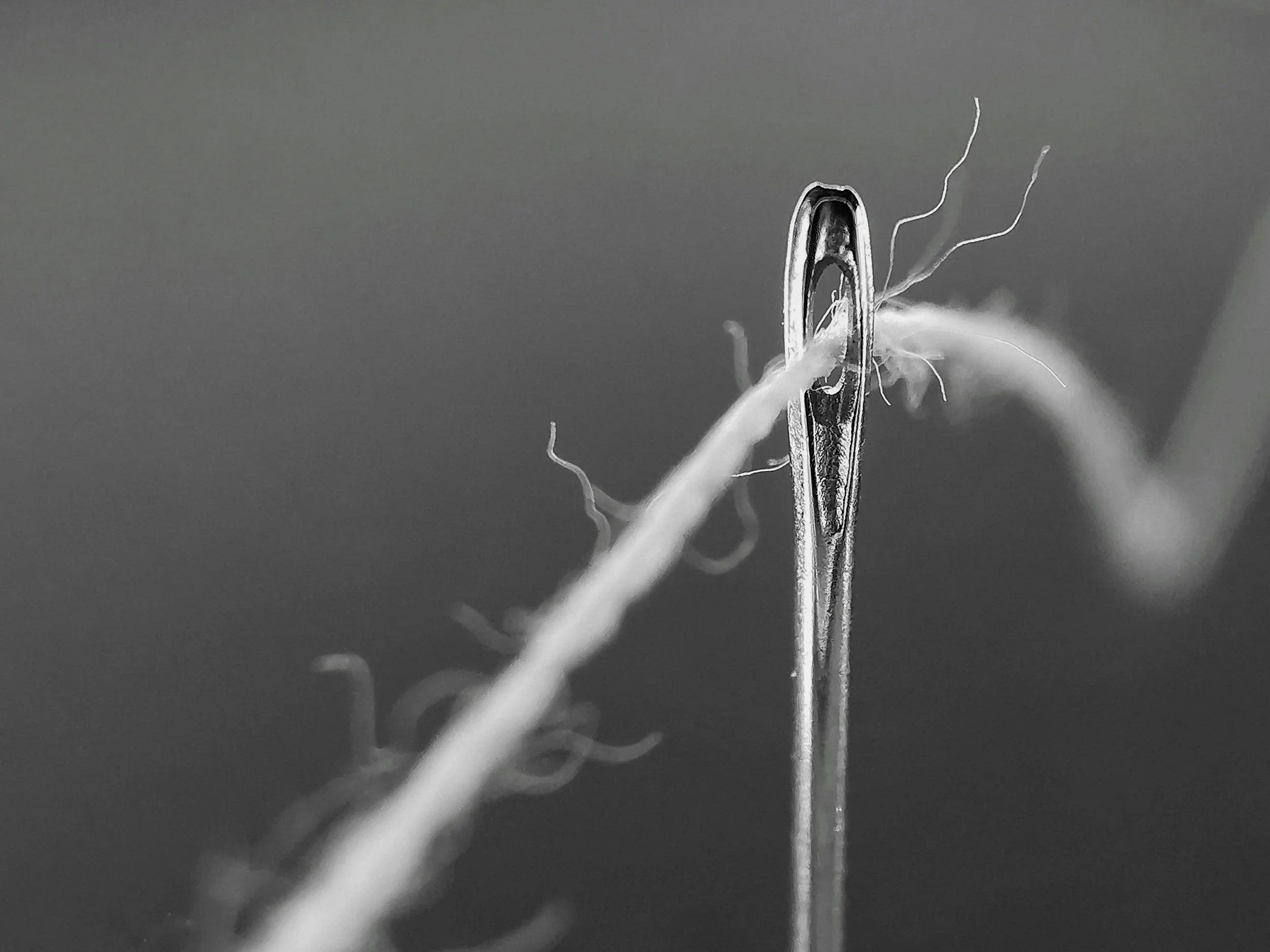OCD Treatment
You're Exhausted From Fighting Your Own Mind
You know the thoughts aren't rational. You recognize the rituals aren't helping. But knowing doesn't make it stop.
Maybe you've spent hours checking the door, reviewing conversations in your head, or seeking reassurance from people who are tired of reassuring you. Maybe your thoughts are so disturbing you can't imagine telling anyone what's actually going on in your mind. The compulsions feel necessary—like the only thing standing between you and complete catastrophe—but they're eating your life.
OCD is insidious: the more you try to control it, the stronger it gets. Every ritual, every check, every act of mental review reinforces the cycle. Your world gets smaller. Relationships strain. Hours disappear.
You're not managing anxiety anymore—you're trapped by it.
But OCD is highly treatable. With the right approach, it's absolutely possible to break this cycle, reclaim your time and energy, and stop living at the mercy of your thoughts.
What OCD Actually Is (Beyond the Stereotypes)
Obsessive-Compulsive Disorder isn't about being tidy or particular. It's about intrusive thoughts (obsessions) that feel unbearable, and repetitive behaviors or mental rituals (compulsions) aimed at making those thoughts go away.
Common forms of OCD include:
Fear of harm coming to yourself or others
Contamination fears or health anxiety
Moral or religious obsessions (scrupulosity)
Sexual or violent intrusive thoughts that horrify you
Compulsive checking, counting, washing, or arranging
Mental reviewing, replaying conversations, or reassurance-seeking
Relationship doubts (ROCD)
These obsessions come with intense fear, guilt, shame, or uncertainty. And compulsions—whether physical rituals or mental acts like counting, repeating phrases, or reviewing memories—temporarily ease the discomfort. But they also feed the cycle, making the obsessions stronger and the need for rituals more urgent.
OCD is exhausting. It drains you mentally, emotionally, and physically. It often overlaps with anxiety, depression, or trauma. And many people live with it for years before finding treatment that actually works.
Here's What Standard OCD Treatment Misses
Most OCD treatment focuses on Exposure and Response Prevention (ERP)—facing your fears without doing the compulsion. And ERP works—to a point. It can help extinguish specific compulsive behaviors. You might stop checking the door, stop seeking reassurance, stop performing the ritual.
But the voice underneath—the one the compulsions were trying to silence—is still there, whispering. And over time, that whispering grows louder. The intrusive thoughts find a new target. A new obsession takes hold. You're managing symptoms, but you haven't addressed why your nervous system developed this pattern in the first place.
Here's what often gets missed: OCD isn't just about what you think. It's about what you can't feel.
Compulsions aren't just habits you picked up—they're protecting you by distracting you from feelings that seem too dangerous to experience. And now the distraction itself has become the problem.
The rage you've never been allowed to express. The shame you absorbed growing up. The terror of being abandoned or rejected. The grief that's never been processed.
When those feelings start to surface, your mind generates intrusive thoughts as a distraction, and your compulsions kick in to keep you from feeling what's underneath. Yes, you really are afraid you left the stove on. But that worry consumes so much time and mental space that there's no room to even be present in your life. And doesn't that really give away the whole game?
This is why ERP alone can sometimes feel like you're white-knuckling your way through exposure without real relief. You're managing symptoms, but you're not addressing why your nervous system developed this pattern in the first place.
I offer OCD treatment in-person in McLean, Virginia, and via telehealth throughout Virginia, Maryland, and Washington, D.C.
An Integrated Approach to OCD Treatment
In my practice, I combine evidence-based approaches to address OCD at multiple levels:
Exposure and Response Prevention (ERP) is still central to the work. You need to learn to tolerate uncertainty and resist compulsions. But we do this with an understanding of what's driving the cycle—not just mechanically exposing you to triggers.
Internal Family Systems (IFS) helps us understand the parts of you involved in the OCD cycle. The part that generates intrusive thoughts. The part that compels you to ritualize. The part that's terrified of what will happen if you don't. These aren't dysfunctions—they're protective strategies. And they need to be worked with, not overridden.
Experiential Dynamic Therapy (AEDP and ISTDP) helps us access the core emotions beneath the obsessions and compulsions. When we can safely experience the feelings your OCD has been protecting you from—rage, grief, shame, loneliness—the urgency of the obsessions often softens. Your nervous system begins to learn it can handle these emotions without needing the compulsive loop.
EMDR can help when experiences that shaped beliefs like "I'm bad" or "It's my fault" are fueling the OCD patterns. EMDR allows your brain to reprocess those experiences so they stop triggering the obsessive-compulsive cycle.
The goal isn't just symptom reduction—it's understanding why OCD keeps trying to grab hold of the wheel, and addressing the emotional roots so you're not just white-knuckling your way through life.
What This Looks Like in Practice
Let's say you have intrusive thoughts about harming someone you love. The thoughts are horrifying. You know you'd never act on them, but that doesn't make them less distressing. So you avoid being alone with that person, or you mentally review your intentions over and over to reassure yourself you're not dangerous.
In standard ERP, we'd work on exposure—being in situations that trigger the thoughts without doing the mental review. And that's part of what we'd do here.
But we'd also explore what's underneath. What feelings are these thoughts protecting you from? Often, underneath violent intrusive thoughts is an emotion that's never been allowed to surface—rage at a parent or partner, grief that's never been processed, shame you absorbed growing up, or deep loneliness you learned to hide. Your mind creates a horrifying thought to keep you from feeling that emotion directly, because somewhere along the way you learned it wasn't safe—that others couldn't handle your emotions, or that expressing them would lead to rejection or punishment.
When we can work with that emotion safely—when your nervous system learns it can feel rage or grief or shame without catastrophe—the intrusive thoughts often lose their intensity. The compulsions become less urgent because the underlying threat has been addressed.
This is what integrated OCD treatment looks like: ERP to break the behavioral cycle, and depth work to address what's been fueling it.
OCD Treatment: You May Be Wondering...
I've had OCD for years. What if it's treatment-resistant?
If you've struggled with OCD for a long time or felt discouraged by past therapy, it doesn't mean you're untreatable. It often means the treatment didn't address the deeper patterns driving the cycle. ERP combined with approaches that work with underlying emotions can create movement even in long-standing OCD.
I'm too ashamed to talk about my thoughts.
This is incredibly common. Many people with OCD carry deep shame about their intrusive thoughts—especially sexual, violent, or morally disturbing ones. In therapy, we approach these thoughts with curiosity, not judgment. They're symptoms of your struggle, not reflections of who you are.
Will talking about my OCD make it worse?
When done skillfully, no. In fact, carefully guided exposure combined with emotional processing helps reduce the intensity and frequency of obsessions over time. We move at a pace your system can handle—this isn't about flooding you with anxiety.
Ready to Break the Cycle?
If you've been fighting OCD alone, you know how exhausting it is. Treatment that addresses both the behavioral patterns and the emotional roots can help you reclaim your life.
I offer a free 15-minute consultation to discuss your specific situation and see if this approach is a good fit. Not every therapist is right for every person—what matters is finding someone who understands what you're working with and has the experience to help.
You don't have to keep managing. This isn't about endlessly talking through your thoughts—it's about actually changing the patterns that keep you stuck. Many people find relief in finally working with someone who understands the difference.






